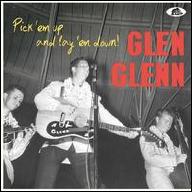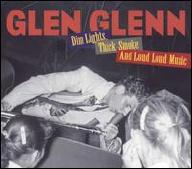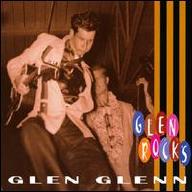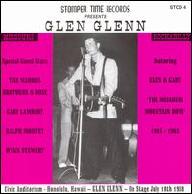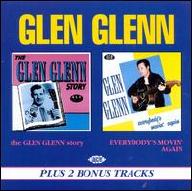Glenn was born Orin Glenn Troutman on October 24, 1934, in Joplin, Missouri. Troutman was raised on the classic traditional country sounds of the deep South (and was related to Porter Wagoner by marriage), and when his family relocated to San Dimas, California in 1948, his enthusiasm for classic country and Western swing sounds continued to grow. By the time he was 17, he had bought a guitar and had started jamming with Gary Lambert, a gifted guitar picker who went to the same high school as Troutman and had also started listening to the new R&B sounds which were pouring into California's airwaves. He and Lambert formed a country duo called the Missouri Mountain Boys, and began making the rounds of Los Angeles's country bars, with Troutman dropping out of high school to devote himself to music full-time.
Eventually, Troutman and Lambert landed a regular spot on a local television show devoted to country music, where they became friends with another local artist with a distinctive style, Eddie Cochran. Lambert cut some demos with Cochran, and Troutman was strongly influenced by Cochran's blend of country twang and R&B rhythm. Soon Troutman was dropping R&B and rockin' country tunes into their sets, and after editing his name to Glen Trout, he began touring steadily and cutting demos for a variety of labels, mostly with, but occasionally without, Lambert. In late 1957, Troutman finally landed a deal with L.A.'s ERA Records, and in January of 1958 his first single was released, the superb "Everybody's Rockin'" backed with "I'm Glad My Baby's Gone." However, Troutman soon received two less-than-welcome surprises -- without consulting him, ERA had bestowed a new stage name on him, Glen Glenn, and the rising star received his draft notice in the mail. (Lambert was also drafted around the same time.) While ERA continued to release material by Glenn, with the artist unable to promote the records, most received little notice, and while rockabilly collectors would later regard such sides as "Blue Jeans and a Boy's Shirt," "One Cup of Coffee," and "Laurie Ann" as classics, outside of California they fell upon deaf ears.
When Glenn and Lambert were discharged from the Army in 1960, they attempted to pick up their careers where they left off, but by that time rockabilly had fallen out of favor and ERA had moved Glenn to their subsidiary label Dore Records, where they tried to polish him into a well-scrubbed pop crooner. While the results weren't as dire as one might fear, the records didn't sell especially well, and Glenn dropped out of music full-time shortly afterward, though both he and Lambert continued to perform on weekends. A country side Glenn and Lambert cut in 1961 found a belated release in 1964, which would have marked the end of Glenn's recording career if a British label hadn't released a compilation of his rare rockabilly material in 1977. Like many lesser-known American rockabilly artists, Glenn soon developed a passionate following in the U.K., and in 1984 he cut a new Glenn album with Lambert for the Ace label. Glenn became a regular fixture on the California club scene, and staged occasional European tours. Glen Glenn died on March 18, 2022; he was 87. ~ Mark Deming, Rovi


